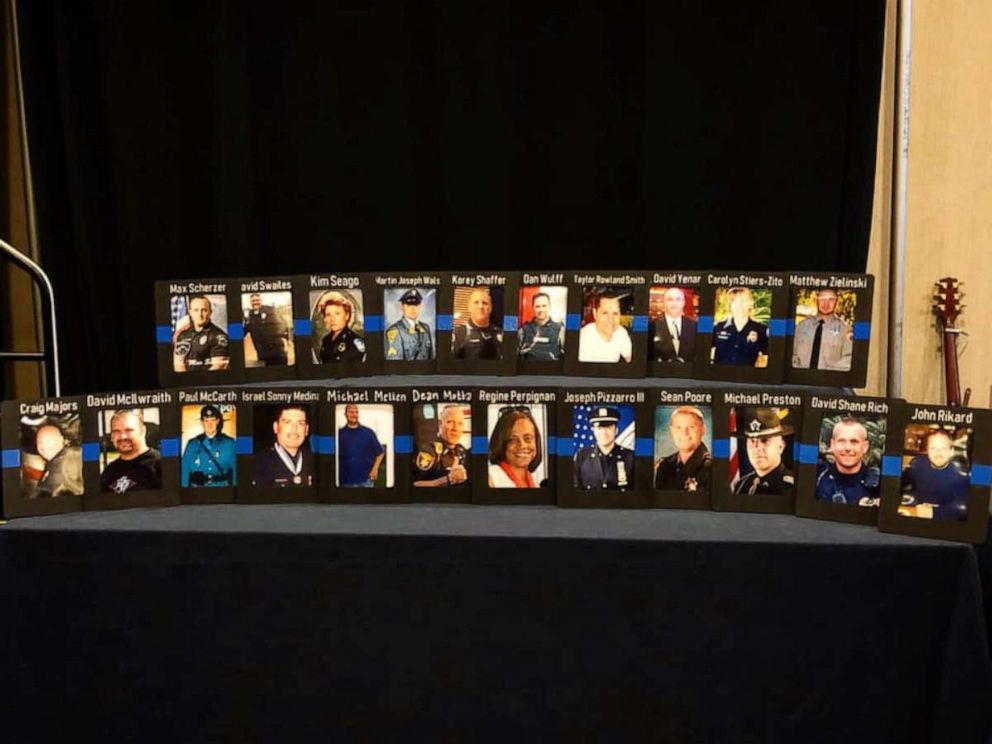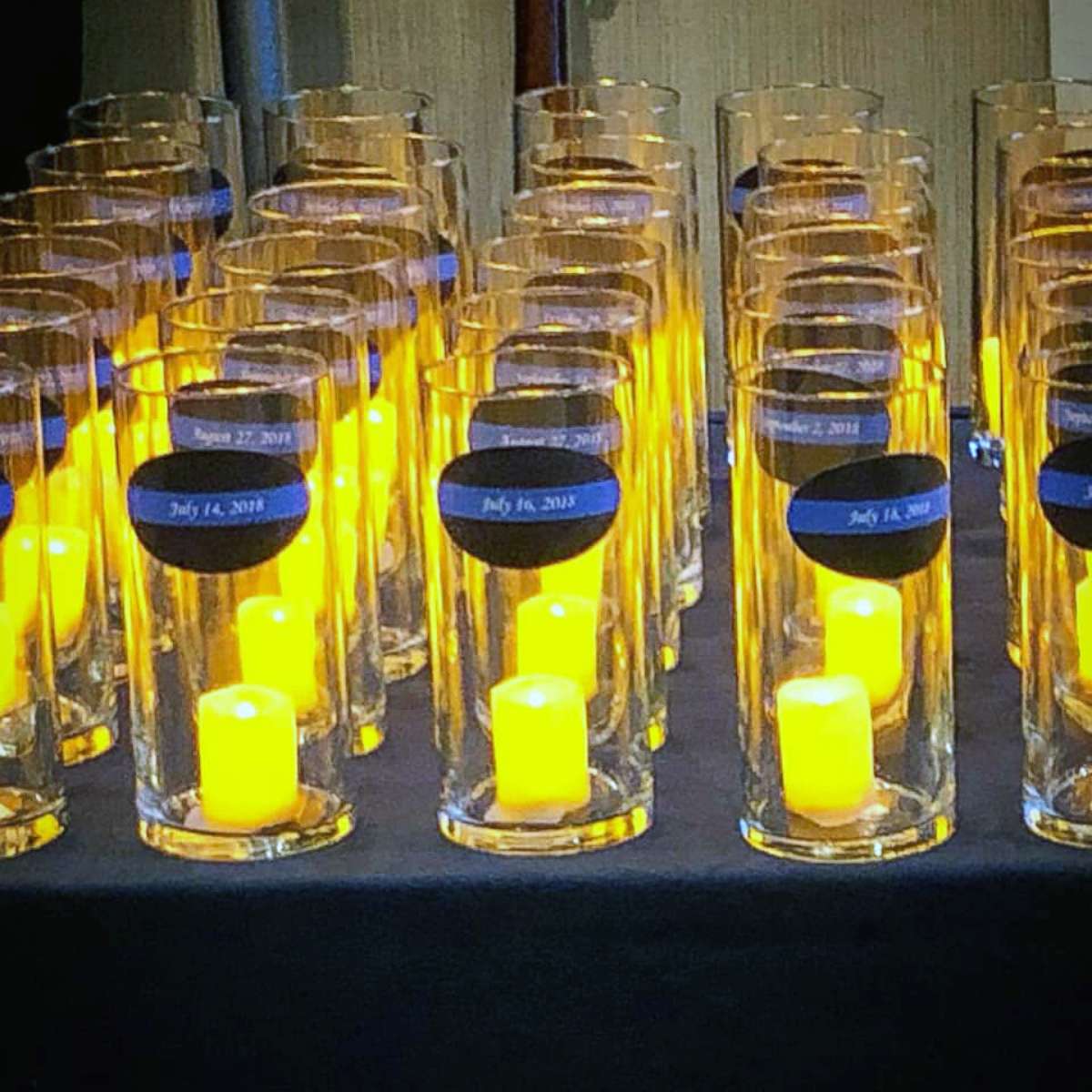For National Police Week, one group is calling attention to law enforcement suicide
For 3 years running, suicide has been the #1 killer of U.S. police officers.
Melissa Swailes, was at her mother’s house baking a cake for her son's birthday, when her husband, David, a Los Angles police officer called to tell her he needed help and was on the way to the police station to find it.
It was February 26, 2016, and she knew that her husband, a Navy veteran had not been acting like himself. In fact, at one point, he took all the interior doors in the house off their hinges.
"The last the thing he said to me was, 'I am going to go down to the station, I'll call you when I get there. Tell the boys I love them, and I love you,'" Swailes, the mother of four boys, recalled to ABC News. "And instead of going to the station he walked into our bedroom and he grabbed one of his weapons and shot himself in the head."
Swailes was one of at least five such widows who came to the nation's capital this week to highlight the growing problem of police suicides. Already this year, 78 officers have taken their own life according to Blue H.E.L.P. a nonprofit organization that tracks and monitors law enforcement suicides.

If that rate continues, 2019 would see a 26% jump in law enforcement suicides over last year.
For the third straight year in 2018, more American police officers died by their own hand than in all other line-of-duty deaths.
"These guys are our caretakers and we need help taking care of them," Karen Solomon, president and co-founder of Blue H.E.L.P. told ABC News.
To honor the lives lost, Blue H.E.L.P. hosted a dinner in Washington, D.C, coinciding with National Police Week, an annual gathering of law enforcement from around the country that honors fallen officers.
These guys are our caretakers and we need help taking care of them.
During the dinner, a top Justice Department official urged everyone to "smash stigmas, save lives."
"When someone is hurting from [post traumatic stress], depression, whatever the trigger may be, I don't want anybody going on google looking for help," said Jon Adler, a former law enforcement officer and director of the Bureau of Justice Programs.

Adler said that he hoped that officers seek help within their police departments. Adler also said the hope is to establish a national database through the Department of Justice where chiefs and sheriffs can share law enforcement suicide statistics. All of this, Adler said is an effort to make sure that no other officer takes his or her own life.
Also speaking at the dinner was Janice McCarthy, the wife of former veteran Massachusetts State Police Capt. Paul McCarthy, who took his own life in 2006.
In a memo he left behind, McCarthy called on police departments to "provide assistance to officers and their families who suffer from post-traumatic stress," his wife said, recounting the words of her late husband.
As for Swailes, she hopes people remember those officers -- like her husband -- for the lives they lived, not for the way they died.
His death does not negate his 10 years of service to his community, his four years of service to the country. It should not define a lifetime.
"His death does not negate his 10 years of service to his community, his four years of service to the country," she said. "It should not define a lifetime."
In speaking with ABC News, Swailes emphasized that even those arrested by her husband had lauded his efforts as a law enforcement officer.
"What other officer do you have whose funeral service, the arrestees are coming to honor him and remember him, " Swailes continued.
"That's the kind of officer he was," Swailes added with a bittersweet smile.




